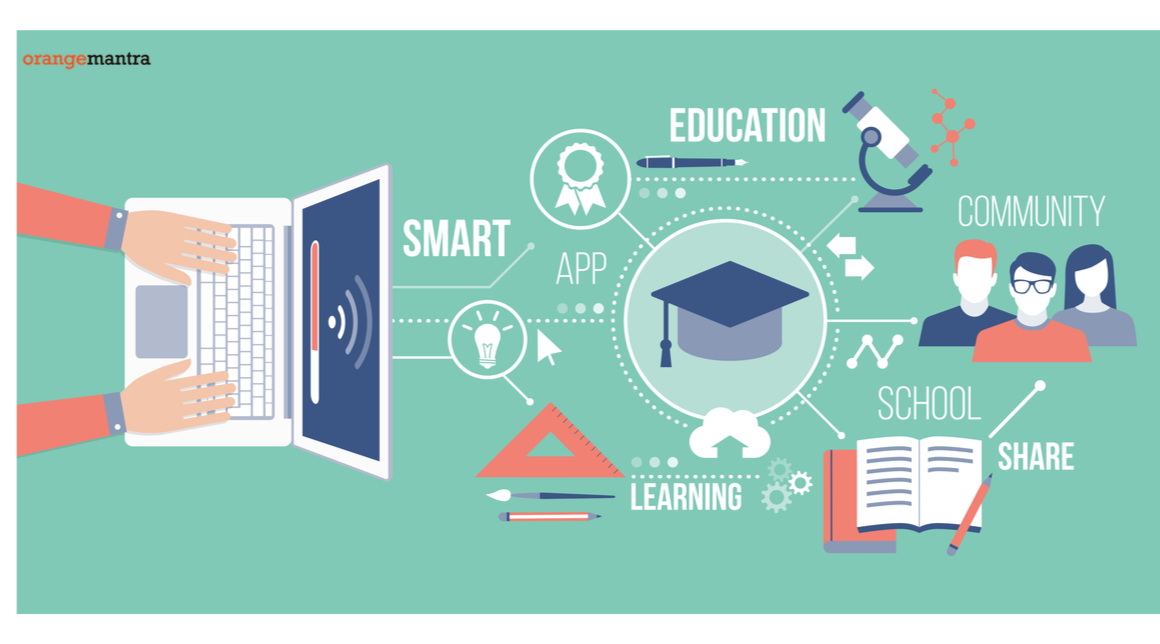The education industry is transforming more rapidly than many other traditional sectors. Like a zillion other things, the pandemic has further prompted more widespread changes in the industry. Be it shifting classes to digital platforms or adopting school management software, technology is reshaping education in innumerable ways. The tech-driven transformations that were once a choice have now become the only ways to deliver education amid the crisis.
However, it’s not just the methods of learning that have changed; the pandemic also broadened the perspective of many educators about the role of technology. Today, school leaders, educators, and policymakers are more open to ideas that rely heavily on technology. Many experts believe, the crisis is an opportunity for the education industry to make it more tech-savvy, inclusive, and sustainable. In this blog, we will discuss how that is already happening in a time of technology-driven education.
Emerging Trends in the Education Industry
Technology is driving completely new trends in the education industry. Whether it’s government schools or private colleges, every kind of education institute is increasingly relying on technology. The application of technology wide-ranging in terms of functional aspects. From enhancing classroom experiences with apps to ensuring students’ safety with a student attendance management system, technology is everywhere.
Global accessibility provided by the internet
As more and more people get access to fast internet services, it dramatically changes the way people learn. The internet makes resources global and open access. This digital access to education enables students to learn in a word without borders. With the improved accessibility of learning material and resources, the quality of education also improves.
This increased use of technology results in outcomes like digital classrooms and interactive learning. With the easy availability of services like custom e-learning , institutions can dramatically improve the quality of education. A combination of increased quality and accessibility is driving a new wave of transformation in education services.
AR/VR to enhance learning experiences
More and more institutes are incorporating virtual reality and augmented reality in their education solutions. This is triggered a rise in immersive learning where education and simulation work in concert to help students. AR/VR not only helps students but also makes it easier for teachers to deliver lessons in engaging and effective ways. With the widespread use of smartphones across demographics, the delivery of m AR/VR-enabled education becomes easier. The technologies also help students to easily learn subjects and topics that are otherwise considered to be difficult.
Automation in education & school management
Even before the virus outbreak struck, schools were increasingly adopting automation in different areas of administration. The pandemic has now made automation and robotics more crucial to education than ever. Public safety measures prompted by COVID19 demands minimal human interaction. Automation is designed to reduce human interaction.
As schools start reopening, the administrative process will never be the same. With the availability of a student attendance management system and other automation solutions, administrators have more control over processes. Such solutions also improve young students’ safety, giving parents and teachers accessibility to information like the real-time location of students. It also reduces the burden of administrative processes that involve manual management of attendance and student monitoring practices.
Technology to make education more inclusive
Low-cost private and public schools have been stricken badly by the virus outbreak. These schools face an array of challenges in terms of human resources, education technology, and administrative processes, among many other things. As governments and private organizations encourage educators and students to get digital with EduTech solutions, many challenges are being addressed. With the rising use of smartphones and computers across socio-economic classes, tech-enabled education is slowly becoming mainstream.
In a country like India, digital solutions help such low-cost schools and colleges to deliver more effective and comprehensive education even in remote areas. Services like e-learning app development are becoming more easily available and cost-effective. Schools and policymakers can consider such services to make education equally accessible for all. The number of households having a smartphone and access to the internet is increasing rapidly. It’s an opportunity for educators to leverage the surge in technology adoption to deliver better education.
Data-driven decisions to improve quality
With the adoption of digital platform-based education, the tracking of the teaching and learning processes become much easier. Well-developed digital learning solutions offer dashboards to monitor and manage engagement, effectiveness, and attendance, among other things. This enables education service providers to create a personalized learning experience for students. Advanced smart school solutions offer technologies like AI, ML, and data analytics to make insights-driven decisions. Educators and school leaders can analyze the results of their decisions in real-time and make changes when the need arises.
Conclusion
With in-person classes canceled indefinitely, exams postponed, and new admissions delayed, the education sector remains largely disrupted during the pandemic. Technology seems to be the only way not just to face this disruption head-on but also to prepare for the post-coronavirus world. Tech-savvy educational institutions have already transformed dramatically during the crisis. However, when it comes to becoming future-ready, it’s never too late to start. If you are still wondering about what technology strategy fits into your organization/institute, seek professional guidance to adopt suitable solutions.
At OrangeMantra, a pioneering education app development company in India, we have helped small coaching institutions and top schools alike to become tech driven. Our digital solutions are trusted by clients worldwide. With a team of digital transformation consultants, seasoned software engineers, and education industry experts, we can deliver all kinds of EduTech solutions.
FAQs
Q. How does a school management software work?
A school management software application is a collection of computer instructions used to manage the day-to-day administrative tasks of schools. School management software solutions allow schools to digitally monitor the daily activities along with managing all the resources and information using software dashboards.
Q. What is a student attendance management system?
Student attendance management systems are software developed for tracking and recording daily student attendance in schools, colleges, and other institutes. It enables users to access the attendance information of students from a software platform. The system can also offer real-time locations of students.
Q. What is an e-learning app?
E-learning apps enable students to connect with an educator or a school or institution via a mobile app. The apps are the best tools for providing effective and engaging online education. These apps can also work offline, storing all data and materials like recorded videos of classes, test models, and performance information, etc.
Q. How much does it cost to develop an e-learning app?
The development cost for an e-learning app depends on what kind of solution you need. Costs are lower for apps with basic features. If you need a highly customized app with more advanced features, the cost will be different. OrangeMantra offers competitive pricing every kind of online coaching app.



